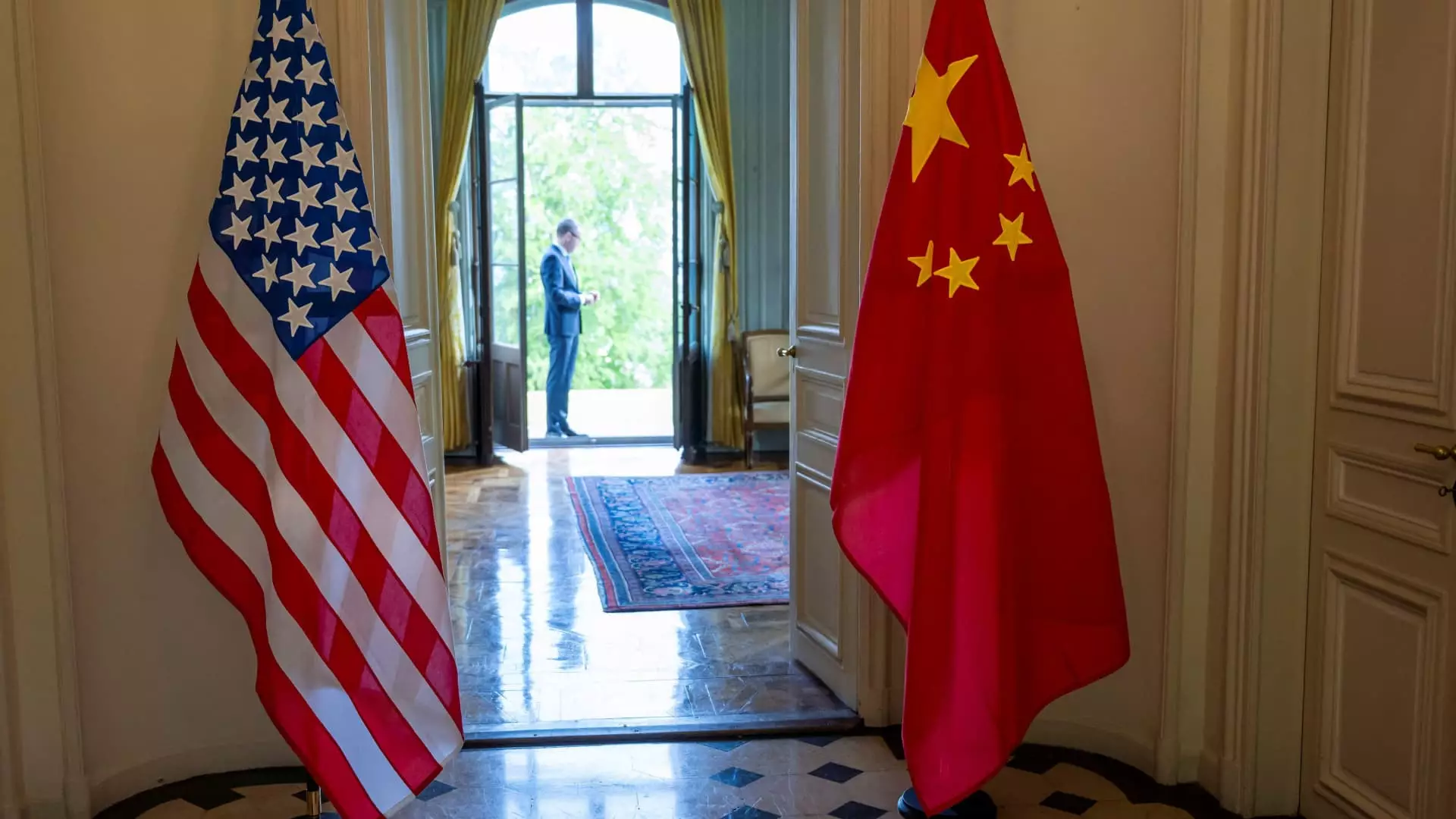It appears the climate of U.S.-China trade relations hangs in an uncomfortable limbo, suggesting a disquieting stagnation in dialogue between the world’s two largest economies. As Treasury Secretary Scott Bessent pointedly noted in a recent Fox News interview, the momentum has stalled, necessitating intervention from the highest levels of leadership. This grim assessment, if anything, underscores the precarious state of international relations and the gravity of the issues that the two nations face. With both sides entangled in a web of tariffs, restrictions, and high-stakes negotiations, it becomes glaringly apparent that the current approach lacks the necessary urgency and ingenuity to break the cycle of hostility.
The landscape of U.S.-China trade relations has continued to
fester as restrictive measures push the two economies further apart. The previous breakthrough in Switzerland undoubtedly offered a fleeting glimmer of hope, but subsequent developments have quickly overshadowed that positivity. Bessent’s comments signaling the need for a conversations between presidents Donald Trump and Xi Jinping reflect a desperation that seems to run counter to the optimism some might have felt after initial agreements. The question that remains is whether both countries can rise above their nationalistic instincts to consider more collaborative solutions.
A Deteriorating Relationship
It must be noted that the diplomatic relations have evolved into essentially transactional exchanges, devoid of the necessary warmth that characterizes successful negotiations. One poignant detail that stands out is the lack of direct communication between Trump and Xi since their last chat in January—a concerning lapse that only adds fuel to the fire of speculation and mistrust. Trump’s unwillingness to communicate without guaranteed stability has imparted a sense of transactional distrust, which has worrying implications for both trade and geopolitical strategies.
China’s apparent hesitance to address U.S. tech restrictions, particularly in terms of rare earths, echoes the increasing tension that underscores contemporary international diplomacy. The insistence from Beijing on maintaining control over exports and the veiled threats directed at the U.S. regarding these measures illustrate a delicate balance that has begun to tilt ominously. More than mere economic issues, these discussions reflect a deeper schism that goes beyond tariffs to touch on control of resources and technological advancements pivotal for future combatants in the global arena.
Engagements vs. Isolation: The Dilemma of Economic Nationalism
Recent developments, such as the U.S. decision to revoke visas for Chinese students, signify an alarming trend of economic nationalism that’s troubling. This formidable action can not only jeopardize the educational aspirations of thousands of students but also damage the long-term bonds between two nations that are still inextricably linked by trade, culture, and mutual interests. The refusal to engage meaningfully risks deepening the divide and reinforcing negative perceptions that will haunt the future of U.S.-China relations for years to come.
China responded to the visa revocation with indignation, labeling the U.S. actions as “fully unjustified.” Such exchanges brim with the bitterness of a growing rivalry, which underscores a pivotal question: are the interests of one nation being favored over collective global stability? One can’t help but think that an incessant friction, coupled with growing isolationist sentiments, might ultimately lead to outcomes detrimental to both nations and, by extension, the world economy.
Looking Ahead: The Need for Innovative Diplomacy
In a world that increasingly faces the scourge of polarization, the need for innovative diplomacy remains more urgent than ever. The essence of effective international negotiation lies in its ability to leverage collaboration rather than domination. In moments of great tension, creativity in diplomacy becomes a crucial asset, yet current attempts seem to be bogged down by outdated mindsets. It’s imperative for both U.S. and Chinese leaders to adopt a new course of action—one that emphasizes open dialogue, reciprocal concession, and a committed pursuit of meaningful relationship-building rather than superficial agreements.
The complexities of global trade require more than just short-term fixes. Addressing the core issues that perpetuate contention—such as technology transfers, resource control, and trade deficits—will be a litmus test of maturity for both governments. The continued silence, punctuated by sporadic communication and reactions laden with defensiveness, threatens the very fabric of global economic mobility. History has shown us that nations that engage with patience and a willingness to understand opposing perspectives are the ones that emerge victorious in the delicate dance of international diplomacy.
Lest we forget, the stakes are immensely high, not just for the U.S. and China, but for an interconnected world that deserves leadership capable of navigating these formidable waters with foresight and resolve.

Leave a Reply